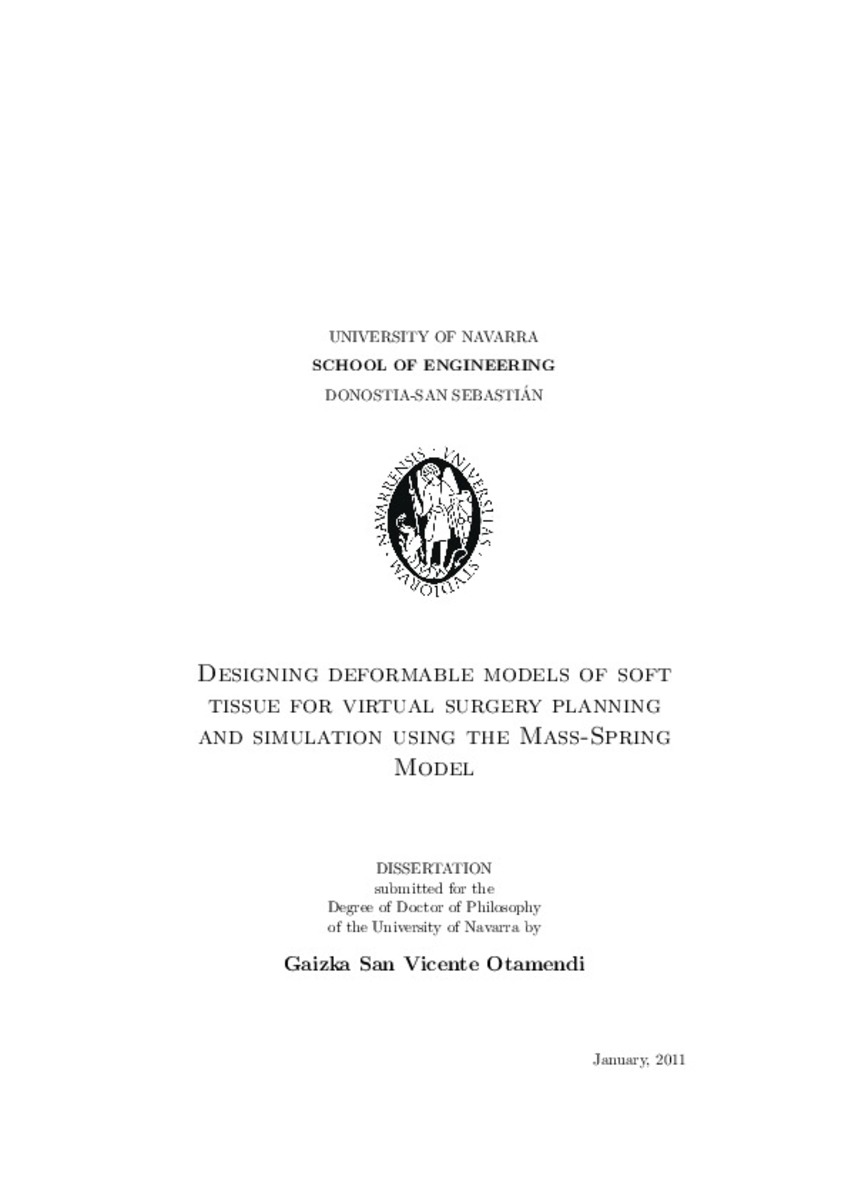Designing deformable models of soft tissue for virtual surgery planning and simulation using the Mas-Spring Model
Palabras clave :
Mass-Spring Model
Soft tissue
Virtual Reality
Surgery simulation
Biomechanics
Fecha de publicación :
2011
Fecha de la defensa:
4-feb-2011
Editorial :
Servicio de Publicaciones. Universidad de Navarra.
Cita:
SAN VICENTE OTAMENDI, Gaizka ""Designing deformable models of soft tissue for virtual surgery planning and simulation using the Mas-Spring Model"" Celigüeta Lizarza, Juan Tomás y Aguinaga Hoyos, Iker. Tesis doctoral. Universidad de Navarra, 2011
Aparece en las colecciones:
Estadísticas e impacto
0 citas en

0 citas en

Los ítems de Dadun están protegidos por copyright, con todos los derechos reservados, a menos que se indique lo contrario.







